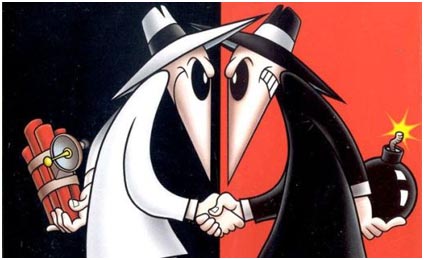 WikiLeaks, the CIA and You
WikiLeaks, the CIA and You
Most of you have heard about WikiLeaks publishing reams of top-secret (classified) CIA documents, many of which pertain to the tools and methods used by the CIA to spy on or hack targets. If you’re looking for a juicy anti-WikiLeaks or Anti-CIA exposé, you won’t find it here; I’m quite sure many other sites will have it covered whichever way you like it.
Nope, we’re not in the business of politics, we’re in the business of helping you with your computer and/or Internet-connect devices, and to help you stay safe online.
Over the course of our nearly two decades online, we’ve published numerous articles urging you to think before you click, to watch out for attachments, to be careful not to get snookered by authentic-looking phishing email and to always use strong passwords.
For the past few days, since WikiLeaks published the purloined, classified CIA documents, there have been numerous articles reminding users how to enhance their privacy online. What the CIA documents have to do with your privacy online, I’m not sure. But I’m pretty sure that the hacking tools and methods used by the CIA are now, thanks to WikiLeaks, in the hands of hackers and criminals all over the world.
If you read some of these articles, like this one from “USA Today”, about enhancing your online privacy in the wake of the WikiLeaks revelations, you’ll find that what we’ve been telling for years is the best way to stay safe and protect your privacy online.
- THINK BEFORE YOU CLICK! MOST OF THE HACKING DONE BY THE CIA WAS DONE BY PHISHING EMAIL CONTAINING LINKS
If you get an email from a bank or other financial institution with a link or links to “verify your password” or “verify your account info”, or other such nonsense, DO NOT CLICK THE LINK. If you’re bank sent it, they normally will not put a link in it to click to verify anything. If you’re not sure, be smart… if you’re bank’s name is “Midwest Bank and Trust” then type their Web address directly in your browser. Surely you know the URL of your bank, right? Make sure it begins with HTTPS:// and not HTTP://.
This not only applies to official-looking email from your bank or financial institutions, but also to government websites, online stores, and even your friends. Yes, hackers and criminals can spoof you friends’ email addresses and trick you into clicking links you should not click – and installing malware on your computer.Much, if not most, malware that can be used to spy on you, your family, and steal your sensitive information is spread by phishing emails.Be careful! THINK BEFORE YOU CLICK.
- BEWARE OF ATTACHMENTS
Attachments were once a way for friends and colleagues to share files. But now it’s mostly a way for hackers and criminals to install malware on your PC. Unless you were expecting an attachment and you are positive you know what it is and who it is from, the safest thing to do is delete the email and the attachment with it. Opening an attachment that you’re unsure about, is a sure way to get yourself in trouble.
- USE STRONG PASSWORDS
If you’re using passwords like tiger56 or JJones1964 or password or 12345 or bettyJ23, you need to change them immediately – especially if you’re using those kinds of simple, easy-to-hack passwords on sites where you exchange sensitive, confidential information. Financial institutions, online stock brokerages, banks, government sites, credit & debit card sites, online shopping sites, sites you use to connect with your health care provider(s) — any site with which you share highly personal information. Always use strong passwords.
Most password managers, like LastPass have password generators that can generate strong, secure passwords and remember them for you. AND NEVER USE THE SAME PASSWORD ON MORE THAN ONE SITE.Don’t fool around and stick with your weak passwords, just because nothing has happened to you yet. Are you sure? And, never ever using the same passwords for all sites – or it will catch up with you someday. The time to shore up your weak passwords is now, not after one or more of your accounts is breached. Don’t let it happen to you.
It’s funny how the simple fundamentals of online safety change very little over time, no matter how much the Internet changes. There’s an old saying, you’ve probably heard, it goes: “The more things change, the more they stay the same.”
If you are careful and stick to the fundamentals of online safety, there’s a good chance you’re going to be OK.
One more thing: There’s no such thing as privacy online anymore. It’s foolish to think you can ever keep everything you do online, private. It’s never going to happen. And the more times goes by, less privacy you’ll have.
If you want 100% privacy, call your ISP and turn off your Internet service, toss that smart phone or cell phone, and don’t drive a car – or just move to a 3rd-world country, change your name and live in a hut.
In our modern world, privacy is just a word.
Someone said it was Pi Day…
Celebrate Pi Day with some pie. After the pie, burn off some of those extra calories with a donation to help Cloudeight.. We’re pretty sure giving not only helps to keep our readers’ computers running well and helps them stay safe online, it probably will burn off some calories too! I


